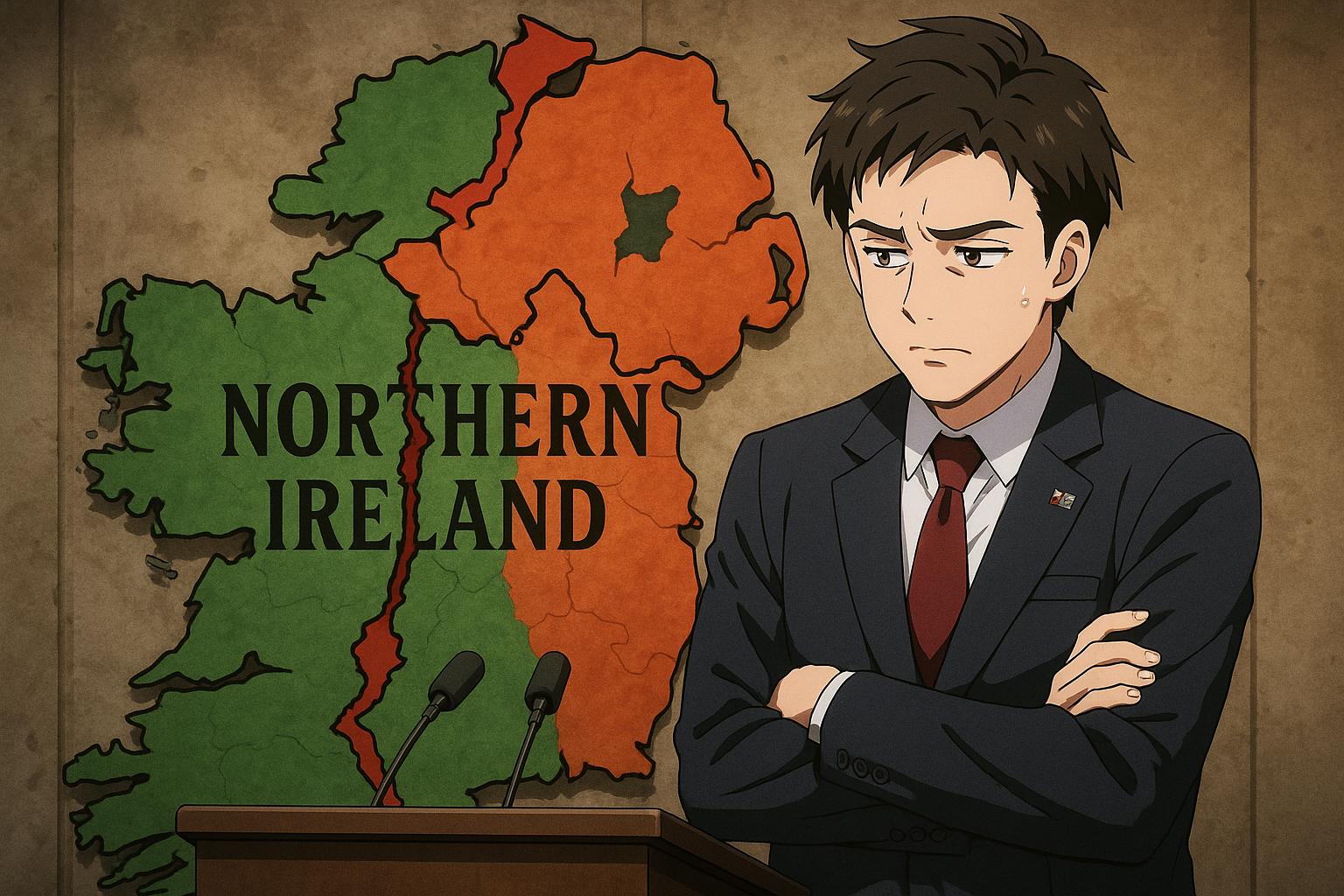In a recent address, Mike Nesbitt articulated a sentiment that, while appealing in theory, seems painfully out of touch with the realities that plague Northern Ireland. Speaking to students at St Mary’s University College in west Belfast, Nesbitt suggested that Northern Ireland's portrayal as a “failed, ungovernable statelet” is outdated, urging a unity that has proven elusive time and time again. His “Prosperity Agenda” might sound commendable but raises eyebrows in light of the growing dissatisfaction among constituents who have long seen partisan interests overshadow genuine governance.
Despite Nesbitt's optimistic rhetoric, the stark truth is that the spirit of cooperation has yet to materialize into tangible results. Political commentator Alex Kane underscored this disconnect by highlighting that, after 26 years of devolution, the fundamental criteria for success—trust and collaborative governance—remain unmet. The absence of a cohesive Programme for Government speaks volumes about a political culture mired in sabotage rather than solidarity. Just hours before Nesbitt's remarks, the Democratic Unionist Party (DUP) was embroiled in finger-pointing, showcasing a reluctance to shoulder joint responsibility for failures in governance.
The ongoing fragmentation among unionist parties complicates any narrative about a united front. Recent electoral outcomes illustrated these divisions starkly; while unionists secured a marginally higher vote share than nationalists, internal discord severely limited their effectiveness. The DUP has not only lost ground to rival pro-UK candidates but has also allowed Sinn Féin to maintain and even expand its influence. This reality further clouds any claims that unity within unionism is essential for effective governance in Northern Ireland.
Kane critically examines the motivations behind calls for unity, suggesting that unionists are primarily spurred by a desire to counteract claims of Northern Ireland's ineffectiveness, which threatens their justification for remaining part of the UK. Conversely, nationalists focusing on successful governance aim to rally support from the South for a border poll. However, this creates a disturbing paradox: a well-functioning Northern Ireland could deter the very sentiments that might sway the outcome of any referendum, while continued dysfunction might bolster calls for change.
Moreover, the recent recommendations from the Northern Ireland Affairs Committee hint at an urgent need for reform within Stormont, advocating for elections for joint First Ministers to be open to any party—not just the dominant two. This increasing dissatisfaction with the current framework underscores a belief that it perpetuates political stagnation and hinders effective governance.
The political polarization gripping Northern Ireland is further aggravated by failed power-sharing arrangements, as evidenced by Sinn Féin's ascent alongside a hardening DUP support base. This disconcerting trend raises alarms about the viability of Northern Ireland's institutions, risking the very fabric of its governance structures. With calls for institutional reform gaining traction, the urgency for a multi-partisan dialogue—including all political factions and civic voices—has never been more critical. Only through authentic engagement can a viable path forward be established.
In conclusion, while Alex Kane's call for a responsible and effective executive highlights a yearning for meaningful change, it remains to be seen whether Northern Ireland's leaders can transcend their longstanding legacies of division. The challenge lies not just in the dialogue but in transforming ambition into action for the collective good. Now more than ever, those in positions of power must abandon their entrenched discord and cultivate a unified front capable of delivering for all citizens, rather than clinging to fractious politics that have long stymied progress.
Source: Noah Wire Services
